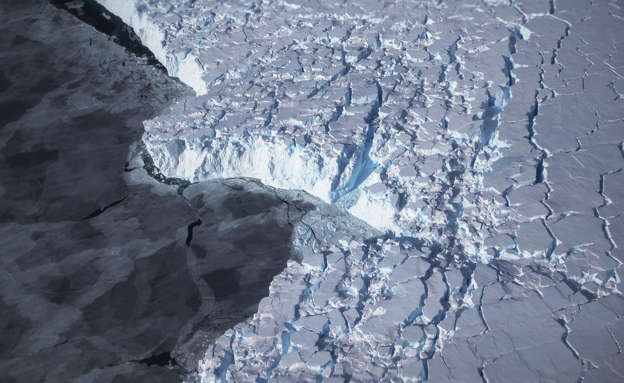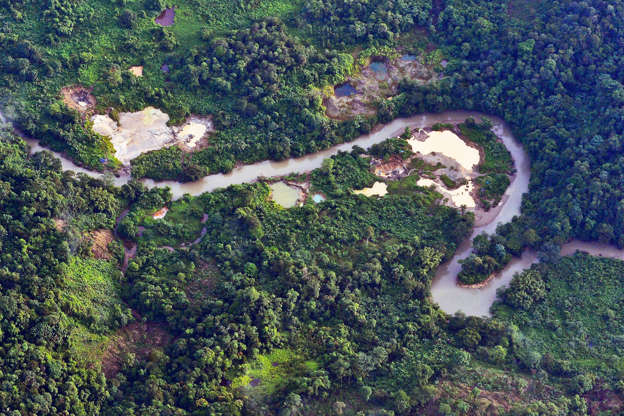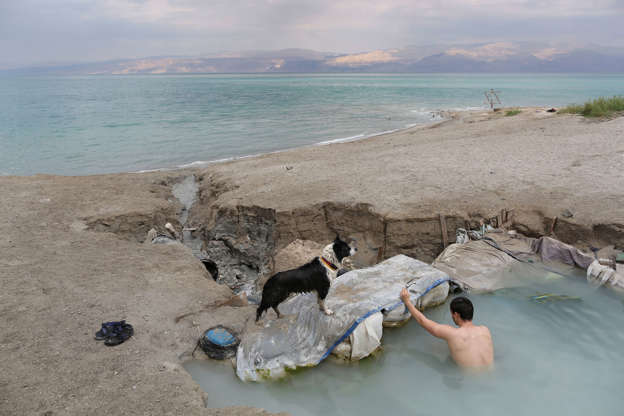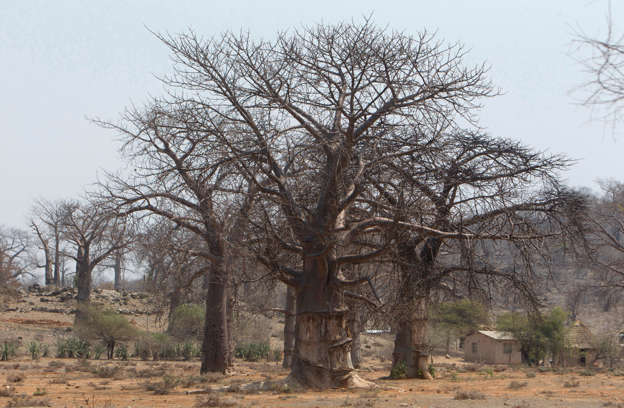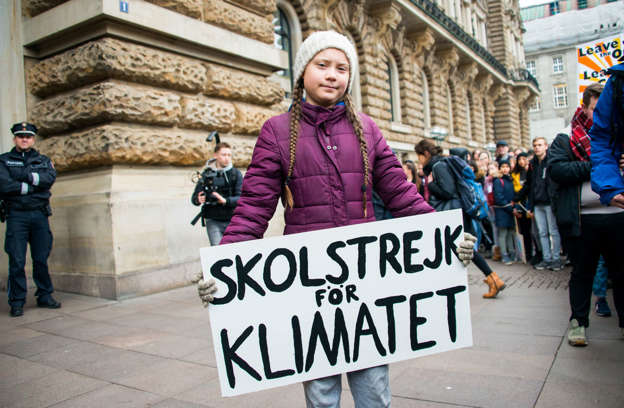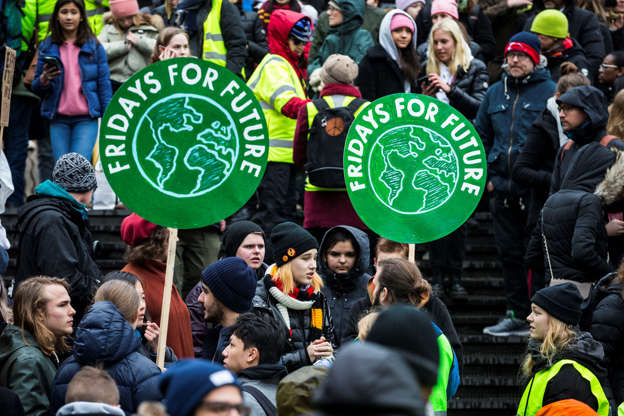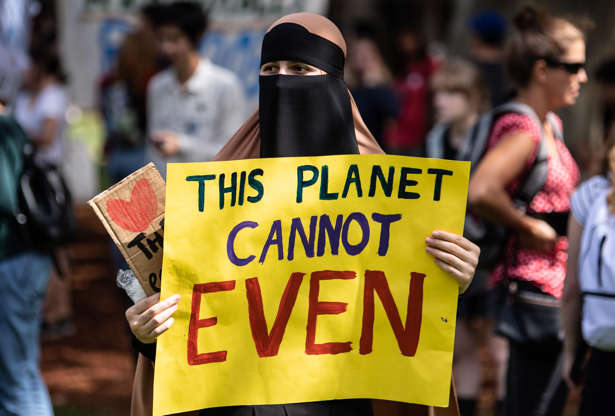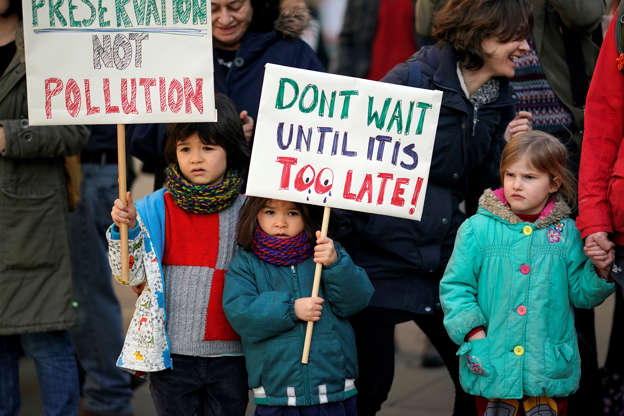Greta
Page 6 of 6
Page 6 of 6 •  1, 2, 3, 4, 5, 6
1, 2, 3, 4, 5, 6
 Re: Greta
Re: Greta
Blago tebi kad ti je država kriva za sve u životu. Najlakše je sve svesti na zajednički nazivnik, pa makar bilo i pogrešnoaben wrote:čudan si ti čovik, frash,melkior wrote:A još me država jebe i s kamerama na cesti, navodno za moju sigurnost. Imam 19 godina vozačkog staža, nikad nisam napravio teži prometni prekršaj, vozio pijan ili prekoračio brzinu 30 km iznad dopuštene u naselju (vezanje pojasa se ne računa), ali bitno da me jebe
ne voliš da te država imo u šaci, a zazivoš više države..

melkior- Posts : 17161
2015-08-09
 Re: Greta
Re: Greta
Dakle, da rezimiram: u posljednjih 150 godina količina CO2 je skočila za 40%, a globalna temperatura za 0,7 °C. Postoji jasna veza između stakleničkih plinova i globalnog zatopljenja.

melkior- Posts : 17161
2015-08-09
 Re: Greta
Re: Greta
Čuj ovog, 30 000 znanstvenikaprckov wrote:
opet ti lijepis ponjave
imas li ti svoj mozak hajvanu jedan
znas li da su u kompjuter ubacivali fingirane podatke da dobiju ono sto su vec zamislili, ne znas jelde
znas li da su u amreici preko 30 000 znanstvenika potpisali tim tvojim famoznim konsenzusom da alarmizam u vezi klime je ubleha
otkud bi to greten znao

 Toliko ih nema na čitavoj sjevernoj hemisferi a kamoli u Americi, lol.
Toliko ih nema na čitavoj sjevernoj hemisferi a kamoli u Americi, lol. Mislim da sam završio s ovom temom i s vama.

melkior- Posts : 17161
2015-08-09
 Re: Greta
Re: Greta
Strašno, proizlazi da je u tom razdoblju razina co2 u atmosferi s 0,025% porasla na čak 0,04%...
_________________


T.- Posts : 17055
2014-04-14
Age : 83
 Re: Greta
Re: Greta
možeš ako imaš USA ustav iz 18og stoljeća i ako se tog ustava držiš do zadnjeg slovamelkior wrote:Imam loše vijesti za tebe: ne možeš imati kapitalizam 19. stoljeća s tehnologijom 21. stoljeća.AssadNaPodmornici wrote:zelena energija = ne postoji, osim nuklearne energije koju ekofašisti mrze. ostale energije su preskupe i čak i nisu ekološki "čiste"(solarne ćelije i vjetroturbine su ekološki prljave i ne-efikasne)marcellus wrote:melkior wrote:Zelena energija.
Kriptovalute.
Društveno odgovorne kompanije.
Kapitalizam 21. stoljeća.
pljačka
kriptovalute, iako ih iman, - nisu idealne. i dalje imaju uz hrpu pluseva i neke minuse, i recimo bitcoin mreža troši struje koliko jedna osrednja država :D
društveno odgovorne kompanije - da, financiraju otvorene granice, useljavanje muslimanskih imigranata i pederske parade.
kapitalizam 21og stoljeća, --- korporativni socijalizam/fašizam, imaš u Kini kapitalizam 21og stoljeća, najbogatiji kapitalisti su ujedno i članovi komunističke partije, i jedni i drugi surađuju i podmićuju se međusobno i uvode totalnu kontrolu nad običnim stanovnikom. To u USA bi prošlo da su Demokrati osvojili vlast, uz pomoć USA korporacija, , Amerika bi se pretvarala u Kinu.
eto ti jebeni kapitalizam 21og stoljeća, nama treba kapitalizam 19go stoljeća

AssadNaPodmornici- Posts : 20833
2018-06-14
 Re: Greta
Re: Greta
melkior wrote:Dakle, da rezimiram: u posljednjih 150 godina količina CO2 je skočila za 40%, a globalna temperatura za 0,7 °C. Postoji jasna veza između stakleničkih plinova i globalnog zatopljenja.
Grenland je u srednjem vijeku imao manje leda nego sada a nije bilo industrijske proizvodnje LOL, valjda su vikinzi dobro prdili CO2

catabbath-

Posts : 12384
2015-08-22
 Re: Greta
Re: Greta
Oh_Femder wrote:Ako misliš na ovu sliku, debelo si u krivu. Tesla je bio tipični lički showman i radi se o duploj ekspoziciji. Te bi te munje spržile dok si reko žvrnj!£otk@ wrote:Vjerojatno do sada ne, a i one Tesline nisu bile opasne za čovjeka.melkior wrote:
Ok, nešto slično kao i bežični prijenos električnih impulsa. U stvari, u pravu si, bežični prijenos struje je isto što što i bežični Internet. Problem je što bi u svakoj kući frcale munje (ili sam u krivu?)
Pa nbije bash tako...U pitanju je VF struja,visokog napona,do..karikiram 100000 volti,ali vrlo slabe struje ( I )...takva struja NE prolazi tijelom covjeka,nego povrsinom njegove koze...
https://hr.wikipedia.org/wiki/Tesline_struje

Guest- Guest
 Re: Greta
Re: Greta
u americi je pokrenuta inicijativa tulomelkior wrote:Čuj ovog, 30 000 znanstvenikaprckov wrote:
opet ti lijepis ponjave
imas li ti svoj mozak hajvanu jedan
znas li da su u kompjuter ubacivali fingirane podatke da dobiju ono sto su vec zamislili, ne znas jelde
znas li da su u amreici preko 30 000 znanstvenika potpisali tim tvojim famoznim konsenzusom da alarmizam u vezi klime je ubleha
otkud bi to greten znao
Toliko ih nema na čitavoj sjevernoj hemisferi a kamoli u Americi, lol.
Mislim da sam završio s ovom temom i s vama.
[size=40]31,487 American scientists have signed this petition,[/size]
[size=40] including 9,029 with PhDs[/size]
ali su znanstvenici iz svijeta
http://www.petitionproject.org/

prckov- Posts : 34049
2014-04-19
 Re: Greta
Re: Greta
inace za gretena melkija evo malo znanstvenika koji su nezavisni ili umirovljeni pa ih se ne moze ucjenjivat
Robert B. Laughlin, Nobel prize winner: you can't find much actual global warming in present day weather observations
Kary Banks Mullis, nobel prize winner: those people at the IPCC don't always tell you the truth, there's nothing in their contract in fact that makes it to their advantage to always tell you the truth
Robert B. Laughlin, Nobel prize winner: you can't find much actual global warming in present day weather observations
Kary Banks Mullis, nobel prize winner: those people at the IPCC don't always tell you the truth, there's nothing in their contract in fact that makes it to their advantage to always tell you the truth
_________________
teza = socijalizam
antiteza = kapitalizam
sinteza = odrzivi socijalizam, odnosno = odrzivi razvoj, odnosno = "degrowth communism"
Ili kako Klaus kaze = "economy of caring and sharing"

prckov- Posts : 34049
2014-04-19
 Re: Greta
Re: Greta
dr Madhav Khandekar Environment Canada scientist, consultant on extreme weather events. Expert reviewer for the IPCC 2007 climate change report: finding global warming in canada and elsewhere is like the proverbial finding needle in the haystack, I'm sorry to say there is no global warming anywhere in the world today
_________________
teza = socijalizam
antiteza = kapitalizam
sinteza = odrzivi socijalizam, odnosno = odrzivi razvoj, odnosno = "degrowth communism"
Ili kako Klaus kaze = "economy of caring and sharing"

prckov- Posts : 34049
2014-04-19
 Re: Greta
Re: Greta
dr Roy Spencer, meteorologist climatologist, former NASA scientist:
about protests - this is the state of climate science today, if you support alarmist narrative you can exaggerete threats and connection with human activities, fake experiments, break government rules, intimidate scientific journal editors and make them resign and even violate the law as long as you can say you're doing it for the children.
about protests - this is the state of climate science today, if you support alarmist narrative you can exaggerete threats and connection with human activities, fake experiments, break government rules, intimidate scientific journal editors and make them resign and even violate the law as long as you can say you're doing it for the children.
_________________
teza = socijalizam
antiteza = kapitalizam
sinteza = odrzivi socijalizam, odnosno = odrzivi razvoj, odnosno = "degrowth communism"
Ili kako Klaus kaze = "economy of caring and sharing"

prckov- Posts : 34049
2014-04-19
 Re: Greta
Re: Greta
evo ti tope sveckog znanstvenika koji vazi za vrhunskog znanstvenika sto se tice klime I mora, cudo ga greta nije obisla za info, ili bar ti 
Nils Axel Mörner concludes that AGW is a “new religion” built on “false premises” and that it violates physical laws. He adds that “the calculated temperature changes from 102 climate models lie above measured values by a factor of three“.
Few scientists have published as much on the subjects of sea level rise, paleo-geophysics and geodynamics as Nils-Axel Mörner has. He is also a co-founder of the Prague-based Independent Committee on Geoethics.
Mörner also called CO2-driven global warming “an illusion” and that scientists “who insist that present climate changes are the function of CO2-driven global warming” place themselves in the “shameful box of anti-science“.

Nils Axel Mörner concludes that AGW is a “new religion” built on “false premises” and that it violates physical laws. He adds that “the calculated temperature changes from 102 climate models lie above measured values by a factor of three“.
Few scientists have published as much on the subjects of sea level rise, paleo-geophysics and geodynamics as Nils-Axel Mörner has. He is also a co-founder of the Prague-based Independent Committee on Geoethics.
Mörner also called CO2-driven global warming “an illusion” and that scientists “who insist that present climate changes are the function of CO2-driven global warming” place themselves in the “shameful box of anti-science“.

prckov- Posts : 34049
2014-04-19

T.- Posts : 17055
2014-04-14
Age : 83
 Re: Greta
Re: Greta
jepte se i vi i znanstvenici...NEMA vise sniga kao nekada i amen..klima je promjenjena,e boli me Kitonja,jel Covjek kriv ili nije..Nema sniga..!!! Bozic i Nova bez sniga,nije to to..
zime nisu vise dobre,ne mosh normalno dimljevinu susiti,a kukci i bolecine bujaju na pozitivnoj temperaturi...
Zima je majka..


zime nisu vise dobre,ne mosh normalno dimljevinu susiti,a kukci i bolecine bujaju na pozitivnoj temperaturi...
Zima je majka..

Guest- Guest
 Re: Greta
Re: Greta
[size=47]Revealed: the 20 firms behind a third of all carbon emissions [/size]
The Guardian today reveals the 20 fossil fuel companies whose relentless exploitation of the world’s oil, gas and coal reserves can be directly linked to more than one-third of all greenhouse gas emissions in the modern era.
New data from world-renowned researchers reveals how this cohort of state-owned and multinational firms are driving the climate emergency that threatens the future of humanity, and details how they have continued to expand their operations despite being aware of the industry’s devastating impact on the planet.
The analysis, by Richard Heede at the Climate Accountability Institute in the US, the world’s leading authority on big oil’s role in the escalating climate emergency, evaluates what the global corporations have extracted from the ground, and the subsequent emissions these fossil fuels are responsible for since 1965 – the point at which experts say the environmental impact of fossil fuels was known by both industry leaders and politicians.
Related slideshow: Places around the world already affected by climate change (Provided by Photo Services)
Slide 1 of 25: ANTARCTICA - OCTOBER 28: Ice is viewed near the coast of West Antarctica from a window of a NASA Operation IceBridge airplane on October 28, 2016 in-flight over Antarctica. NASA's Operation IceBridge has been studying how polar ice has evolved over the past eight years and is currently flying a set of 12-hour research flights over West Antarctica at the start of the melt season. Researchers have used the IceBridge data to observe that the West Antarctic Ice Sheet may be in a state of irreversible decline directly contributing to rising sea levels. NASA and University of California, Irvine (UCI) researchers have recently detected the speediest ongoing Western Antarctica glacial retreat rates ever observed. The United Nations climate change talks begin November 7 in the Moroccan city of Marrakech. (Photo by Mario Tama/Getty Images)
Previous Slide
Next Slide
Full Screen
1/25 SLIDES Mario Tama/Getty Images
Mario Tama/Getty Images
Since 1992, the frozen continent has lost more than 3.3 trillion tons of ice, resulting in rise in global sea levels by a quarter inch (0.63 centimeters), according to a study published in the journal Nature. Researchers estimate that the rate at which ice is lost has soared from 73 billion metric tons per year in 2007 to 219 billion tons in 2017 – a triple increase that could increase sea levels six inches (15.2 centimeters) by 2100.
The west coast of the Antarctic Peninsula is one of the most rapidly warming parts of the planet. This has affected the distribution of penguin colonies along the coast as sea ice conditions have changed, reports Discovering Antarctica. Melting snow has seen increased plant coverage. Many glaciers have retreated and ice shelves have collapsed.
2/25 SLIDES Luis Robayo/AFP/Getty Images
Luis Robayo/AFP/Getty Images
The world’s largest tropical rainforest (it covers approximately 40 percent of the continent) has not only experienced rising deforestation but also extreme drought that has left it susceptible to fires, says a report published by the United Nations Environment Program. Entire species of vegetation and animals are on the brink of extinction.
3/25 SLIDES Oded Balilty/AP Photo
Oded Balilty/AP Photo
The saltwater lake has shrunk by a third over the last 40 years since development in the region started. Sinkholes are appearing where the water has receded, while mineral extraction by cosmetic companies has further eroded it. Rainfall in the region has declined and a study conducted by Columbia University's Lamont-Doherty Earth Observatory found that thousands of years ago, when temperatures were similarly rising, the entire region suffered a megadrought worse than any ever recorded.
4/25 SLIDES Tsvangirayi Mukwazhi/AP Photo
Tsvangirayi Mukwazhi/AP Photo
One of the oldest living organisms in Africa, these trees can live up to 3,000 years and are often called “the tree of life.” However, over the past 12 years, five of the six largest and nine of the 13 oldest have died, either completely or partially. According to a study published in Nature Plants, this may be due to climate change. “We suspect the demise of monumental baobabs may be associated at least in part with significant modifications of climate conditions that affect southern Africa in particular,” the report says.
5/25 SLIDES Rodger Bosch/AFP/Getty Images
Rodger Bosch/AFP/Getty Images
Popular with tourists, this coastal city came perilously close to literally running out of water early in 2018. The situation forced officials to restrict the amount of water an individual, home or building could use in a day. At their most extreme, these restrictions capped daily usage at a maximum of 50 liters per person.
As of December 2018, the [url=http://www.capetown.gov.za/Media-and-news/Mayor Plato announces City%27s move to Level 3 %27recovery%E2%80%99 restrictions]mayor’s office[/url] has raised that limit to 105 liters but other rules, like the flushing of toilets (only with greywater or non-drinking water, and only when absolutely necessary) remain in force.
6/25 SLIDES Francois Lochon/Gamma-Rapho via Getty Images
Francois Lochon/Gamma-Rapho via Getty Images
Locals have slowly come to accept the flooding of Piazza San Marco (pictured) and other low-lying areas of the city but, with ocean levels rising, Venice is inundating further. The city of canals is sinking fast enough to become uninhabitable by the end of this century, scientists at the Venice in Peril fund have warned.
7/25 SLIDES David Gray/Reuters
David Gray/Reuters
The largest coral reef in the world, covering more than 132,973.5 square miles (344,400 square kilometers), has started showing signs of damage due to rising ocean temperatures. Vast regions have experienced coral bleaching – a condition where the coral turns white and is prone to mass death. A report by the ARC Center of Excellence for Coral Reef Studies found that around 93 percent has experienced bleaching to some degree.
8/25 SLIDES Fred Dufour/AFP/Getty Images
Fred Dufour/AFP/Getty Images
The winemaking region has sprawling vineyards that are slowly being affected by increasing temperatures. In a profession where even a small degree change can cause differences in the produce, or even completely ruin it, a report published in the Proceedings of the National Academy of Sciences forecasts an 85 percent decrease in wine production in the combined Bordeaux, Rhone and Tuscany region.
9/25 SLIDES STR/AFP/Getty Images
STR/AFP/Getty Images
Erratic rainfall and increasing desertification, accompanied by intense droughts, have pushed temperatures so high in the north African country that harvests are being ruined. Warming temperatures have rendered farmlands unsuitable and will continue to affect the country’s food security, according to a report published by the World Food Program and the UK Met Office. Gigantic dust storms called haboob (pictured) have also become more commonplace in recent years.
10/25 SLIDES Sodiq Adelakun/Anadolu Agency/Getty Images
Sodiq Adelakun/Anadolu Agency/Getty Images
The city is made up of a mainland and a series of islands that are all at risk of flooding with increasing sea levels. To prevent that, efforts are on to build an artificial mega city, named Eko Atlantic, on reclaimed land and then build a seawall. Researchers like environmental writer Martin Lukacs have named this “climate apartheid,” as the wall will push storm surges from more affluent locales to neighboring unprotected areas.
11/25 SLIDES Matt McClain-Pool/Getty Images
Matt McClain-Pool/Getty Images
Floods during the Atlantic hurricane season have caused increasing damage in the archipelago. The U.S. Army Corps of Engineers estimates sea levels will rise 15 inches (38 centimeters) over the next 30 years, submerging many parts of the city.
12/25 SLIDES Daniel Hayduk/AFP/Getty Images
Daniel Hayduk/AFP/Getty Images
The coastal city is growing so quickly it has been unable to consider the harm it is causing to the ecosystem. With increased rainfall, it is increasingly prone to floods and downpours, causing $47.3 million worth of damages in just the area surrounding the Msimbazi River, according to the World Bank.
13/25 SLIDES Reinhard Dirscherl/ullstein bild via Getty Images
Reinhard Dirscherl/ullstein bild via Getty Images
Researchers at the University of Exeter have found that elevated surface ocean temperatures during the 2016 El Niño led to a major coral die-off event in the Maldives. Further rise in temperatures due to global warming will only worsen the situation of the coral reefs, scientists warn.
14/25 SLIDES Vasily Bogoyavlensky/AFP/Getty Images
Vasily Bogoyavlensky/AFP/Getty Images
In Russia’s far north, permafrost is melting as the weather has become increasingly unpredictable. Giant craters (pictured) are forming as frozen grounds start thawing. The winter season has shortened and unusually warm temperatures caused an outbreak of anthrax in 2016. “Such anomalous heat is rare for Yamal, and that’s probably a manifestation of climate change,” said Alexei Kokorin, head of WWF Russia’s climate and energy program.
15/25 SLIDES David Keyton/AP Photo
David Keyton/AP Photo
The Arctic is warming at almost twice the global average with sea ice disappearing from the ecosystem. While this has made the waters more navigable through the Northwest Passage, it is also contributing to a rise in global sea level. In the future, this could make Arctic fisheries disappear and harm the coastline, according to the WWF.
16/25 SLIDES Issouf Sanogo/AFP/Getty Images
Issouf Sanogo/AFP/Getty Images
Situated along the Atlantic Coast, the city’s coastline, and specifically the harbor areas, are experiencing high erosion rates, according to news reports. The Ebrie lagoon has also become increasingly polluted and this has led to the loss of fisheries. Heavy and untimely rains are also threatening cocoa growers in the region.
17/25 SLIDES Diana Haecker/AP Photo
Diana Haecker/AP Photo
Over the last 150 years, snowfall in south-central Alaska has increased dramatically by 117 percent due to climate change, according to a study published in the journal Scientific Reports. Another report, by the Alaska Division of Public Health, states that additional diseases, lower air quality from more wildfires, melting permafrost, and disturbances to local food sources are some of the outcomes of climate change affecting the area.
18/25 SLIDES Imaz Press/Gamma-Rapho via Getty Images
Imaz Press/Gamma-Rapho via Getty Images
A mild 2007 winter in the region allowed Asian tiger mosquitoes to breed and when a tourist returned from India with chikungunya, the mosquitoes became the carriers of the new disease. According to the WHO, this was the first European outbreak of a tropical disease. The localized epidemic was repeated in 2017. In a study that year, researchers at the University of Bayreuth reported the spread of the virus was facilitated by climate change and that the "risk of infection will continue to increase in many regions of the world through the end of the 21st century. If climate change continues unchecked, the virus could even spread to southern Europe and the U.S."
19/25 SLIDES Punit Paranjape/AFP/Getty Images
Punit Paranjape/AFP/Getty Images
The changing monsoon season that has caused intense flooding in the economic capital over the past decades has been attributed to climate change in a report published by global development research resource Eldis. The World Bank found that changing rainfall patterns in India was one of many impacts of climate change. "An extremely wet monsoon that currently has a chance of occurring only once in 100 years is projected to occur every 10 years by the end of the century," according to the report.
20/25 SLIDES Thomas White/Reuters
Thomas White/Reuters
The 2.69 million people of the city have been battered by unseasonable typhoons and torrential rains that cause extensive floods. If temperatures continue to rise, the entire commercial region of Osaka could go under water by the 2070s, predict the Union of Concerned Scientists.
21/25 SLIDES Fabrice Coffrini/AFP/Getty Images
Fabrice Coffrini/AFP/Getty Images
One of the most famous skiing regions in the world, the Alps stretch across eight countries. Due to their low altitude, they have seen significant snow melt during shorter winter periods over the years. Around three percent of Alpine glacial ice is lost per year and experts from the University of Innsbruck in Austria believe the glaciers could disappear by 2050 if the melting continues.
22/25 SLIDES Mario Tama/Getty Images
Mario Tama/Getty Images
One of the largest ice fields in the world is receding at shockingly fast speeds. A Nature Geoscience paper found that accelerated melting ice fields account for nearly 10 percent of the global sea-level change from mountain glaciers. Over the last few years, dozens of glacier lakes have virtually disappeared.
23/25 SLIDES Ashley Cooper/Corbis via Getty Images
Ashley Cooper/Corbis via Getty Images
These Pacific island nations are slowly being submerged and, by 2100, many of the lower islands could be uninhabitable, news agencies have reported. The Pacific Climate Change Science Program study found Tuvalu (pictured) would not only see a rise in sea level but also more extreme rainfall and intense cyclones. Five reef islands in the Solomon Islands have already been lost, while another six are eroding quickly.
24/25 SLIDES Smith Collection/Gado/Getty Images
Smith Collection/Gado/Getty Images
Once home to over 150 glaciers, Montana’s majestic park now has just about 26 left. Scientists, including those from the U.S. Geological Survey, believe rapid climate change could see that number shrink to zero between 2030 and 2080, which would not only leave the park without a glacier but also severely disrupt its ecosystem.
25/25 SLIDES Eric Lafforgue/Art in All of Us/Corbis via Getty Images
Eric Lafforgue/Art in All of Us/Corbis via Getty Images
Flooding every rainy season is becoming a common event on the Caribbean island. The reefs around the area have been mined to build up the islands to prevent sinking, reported Reuters. A scientist from the Smithsonian Tropical Research Institute quoted in the report said, “It’s another example that climate change is here, and it’s here to stay.” The report also cites natives are prepared to relocate if the rise in sea level continues.
25/25 SLIDES
The top 20 companies on the list have contributed to 35% of all energy-related carbon dioxide and methane worldwide, totalling 480bn tonnes of carbon dioxide equivalent (GtCO2e) since 1965.
Those identified range from investor-owned firms – household names such as Chevron, Exxon, BP and Shell – to state-owned companies including Saudi Aramco and Gazprom.
Chevron topped the list of the eight investor-owned corporations, followed closely by Exxon, BP and Shell. Together these four global businesses are behind more than 10% of the world’s carbon emissions since 1965.
Twelve of the top 20 companies are state-owned and together their extractions are responsible for 20% of total emissions in the same period. The leading state-owned polluter is Saudi Aramco, which has produced 4.38% of the global total on its own.
Michael Mann, one of the world’s leading climate scientists, said the findings shone a light on the role of fossil fuel companies and called on politicians at the forthcoming climate talks in Chile in December to take urgent measures to rein in their activities.
“The great tragedy of the climate crisis is that seven and a half billion people must pay the price – in the form of a degraded planet – so that a couple of dozen polluting interests can continue to make record profits. It is a great moral failing of our political system that we have allowed this to happen.”
Related slideshow: In photos - Global climate strike by school students (Provided by Photo Services)
Slide 1 of 40: 01 March 2019, Hamburg: Greta Thunberg, climate activist, stands with a banner in front of a rally on the town hall market in front of the town hall. The young Swedish woman has come to Germany for the first time for a school strike for more climate protection. Photo: Daniel Bockwoldt/dpa (Photo by Daniel Bockwoldt/picture alliance via Getty Images)
Previous Slide
Next Slide
Full Screen
1/40 SLIDES Daniel Bockwoldt/picture alliance via Getty Images
Daniel Bockwoldt/picture alliance via Getty Images
Thousands of students walked out of classes and took to the streets worldwide on March 15, 2019, over inaction on climate change. The protests are part of a climate strike urging politicians to take steps to curb global warming and protect the environment. Inspired by Greta Thunberg (pictured), the 16-year-old environmental activist and Nobel Peace Prize nominee who started skipping classes to protest outside Sweden's parliament, school and university students have followed suit, holding rallies and marches worldwide.
Here are some pictures of the protests happening around the world.
2/40 SLIDES Michael Campanella/Getty Images
Michael Campanella/Getty Images
Students prepare to march to the parliament house in Stockholm, Sweden.
3/40 SLIDES James Gourley/Getty Images
James Gourley/Getty Images
A protester seen during the march in Sydney, Australia.
4/40 SLIDES Christopher Furlong/Getty Images
Christopher Furlong/Getty Images
Young children hold placards in Manchester, England.
5/40 SLIDES BRENDAN SMIALOWSKI/AFP/Getty Images
BRENDAN SMIALOWSKI/AFP/Getty Images
Students participate in a rally on the west front of the US Capitol in Washington, D.C., U.S.
6/40 SLIDES Luke Dray/Getty Images
Luke Dray/Getty Images
Participants protest outside Buckingham Palace in London, England.
7/40 SLIDES Jewel Samad/AFP/Getty Images
Jewel Samad/AFP/Getty Images
Students at a rally in Bangkok, Thailand.
8/40 SLIDES Beata Zawrzel/NurPhoto via Getty Images
Beata Zawrzel/NurPhoto via Getty Images
Students protest in Krakow, Poland.
9/40 SLIDES Bastiaan Slabbers/NurPhoto via Getty Images
Bastiaan Slabbers/NurPhoto via Getty Images
A young girl holds up a placard during a climate strike march in Philadelphia, Pennsylvania, U.S.
10/40 SLIDES Katie Falkenberg/Los Angeles Times via Getty Images
Katie Falkenberg/Los Angeles Times via Getty Images
A view of a climate change protest, on the steps of City Hall in Los Angeles, California, U.S.
11/40 SLIDES Gleb Garanich/Reuters
Gleb Garanich/Reuters
Students strike in front of government headquarters in Kiev, Ukraine.
12/40 SLIDES Gonzalo Fuentes/Reuters
Gonzalo Fuentes/Reuters
A demonstration in Paris, France.
13/40 SLIDES Anthony Wallace/AFP/Getty Images
Anthony Wallace/AFP/Getty Images
Students gather to rally in Hong Kong.
14/40 SLIDES Justin Sullivan/Getty Images
Justin Sullivan/Getty Images
Students carry signs as they march during the youth climate strike in San Francisco, California.
15/40 SLIDES Stephane Mahe/Reuters
Stephane Mahe/Reuters
Participants rally in Nantes, France.
16/40 SLIDES Kirsty O'Connor/PA Images via Getty Images
Kirsty O'Connor/PA Images via Getty Images
Participants demonstrate at Parliament Square in London.
17/40 SLIDES PA Wire/PA Images
PA Wire/PA Images
Students demonstrate outside the Scottish Parliament building in Edinburgh.
18/40 SLIDES Carsten Rehder/AFP/Getty Images
Carsten Rehder/AFP/Getty Images
A student holds a placard reading "Grandpa, what is a snowman?" during a strike in Elmshorn, Germany.
19/40 SLIDES Charles Platiau/Reuters
Charles Platiau/Reuters
Youth block the headquarters of French bank Société Générale in La Defense near Paris.
20/40 SLIDES Prakash Singh/AFP/Getty Images
Prakash Singh/AFP/Getty Images
A girl holds placards during a protest in New Delhi, India.
21/40 SLIDES Johan Nilsson/AFP/Getty Images
Johan Nilsson/AFP/Getty Images
Students march with banners and placards in Lund, Sweden.
22/40 SLIDES Jung Yeon-Je/AFP/Getty Images
Jung Yeon-Je/AFP/Getty Images
Schoolchildren and protesters attend a rally in Seoul, South Korea.
23/40 SLIDES Anthony Wallace/AFP/Getty Images
Anthony Wallace/AFP/Getty Images
Students take part in a protest in Hong Kong.
24/40 SLIDES Annegret Hilse/Reuters
Annegret Hilse/Reuters
Students demonstrate in Berlin, Germany.
25/40 SLIDES Laurene Becquart/AFP/Getty Images
Laurene Becquart/AFP/Getty Images
Students participate in a protest in New Delhi.
26/40 SLIDES Don Arnold/Getty Images
Don Arnold/Getty Images
A young girl sits atop her father’s shoulders during a climate change awareness rally at Sydney Town Hall.
27/40 SLIDES Mark Brake/EPA-EFE/REX/Shutterstock
Mark Brake/EPA-EFE/REX/Shutterstock
Students march up King William Street in Adelaide, Australia.
28/40 SLIDES BRENDAN SMIALOWSKI/AFP/Getty Images
BRENDAN SMIALOWSKI/AFP/Getty Images
A scene from a climate rally at the U.S. Capitol in Washington, D.C.
29/40 SLIDES Phil Walter/Getty Images
Phil Walter/Getty Images
Students protest at Aotea Square over climate change inaction in Auckland, New Zealand.
30/40 SLIDES Billy H.C. Kwok/Getty Images
Billy H.C. Kwok/Getty Images
A 12-year-old takes part in the Global Climate Strike in Taipei, Taiwan.
31/40 SLIDES James Gourley/Getty Images
James Gourley/Getty Images
A view of a climate change awareness march in Sydney.
32/40 SLIDES Jewel Samad/AFP/Getty Images
Jewel Samad/AFP/Getty Images
Students display placards during a demonstration in Bangkok.
33/40 SLIDES Don Arnold/Getty Images
Don Arnold/Getty Images
People hold up signs during a rally in Sydney.
34/40 SLIDES Kin Cheung/AP Photo
Kin Cheung/AP Photo
A student with a globe painted on her face takes part in a protest in Hong Kong.
35/40 SLIDES Franck Robichon/EPA-EFE/Shutterstock
Franck Robichon/EPA-EFE/Shutterstock
Students hold placards before the United Nations University demanding actions on climate change in Tokyo, Japan.
36/40 SLIDES Phil Walter/Getty Images
Phil Walter/Getty Images
A protest at Aotea Square in Auckland.
37/40 SLIDES Anthony Wallace/AFP/Getty Images
Anthony Wallace/AFP/Getty Images
Young children demonstrate in Hong Kong.
38/40 SLIDES Don Arnold/Getty Images
Don Arnold/Getty Images
A boy holds up a sign during a rally in Sydney.
39/40 SLIDES Mark Brake/EPA-EFE/REX/Shutterstock
Mark Brake/EPA-EFE/REX/Shutterstock
Students assemble at South Australia's Parliament House in Adelaide.
40/40 SLIDES Hagen Hopkins/Getty Images
Hagen Hopkins/Getty Images
Students march through the streets in Wellington, New Zealand.
40/40 SLIDES
The global polluters list uses company-reported annual production of oil, natural gas, and coal and then calculates how much of the carbon and methane in the produced fuels is emitted to the atmosphere throughout the supply chain, from extraction to end use.
It found that 90% of the emissions attributed to the top 20 climate culprits was from use of their products, such as petrol, jet fuel, natural gas, and thermal coal. One-tenth came from extracting, refining, and delivering the finished fuels.
The Guardian approached the 20 companies named in the polluters list. Seven of them replied. Some argued that they were not directly responsible for how the oil, gas or coal they extracted were used by consumers. Several disputed claims that the environmental impact of fossil fuels was known as far back as the late 1950s or that the industry collectively had worked to delay action.
Most explicitly said they accepted the climate science and some claimed to support the targets set out in the Paris agreement to reduce emissions and keep global temperature rises to 1.5C above pre-industrial levels.
All pointed out efforts they were making to invest in renewable or low carbon energy sources and said fossil fuel companies had an important role to play in addressing the climate crisis. PetroChina said it was a separate company from its predecessor, China National Petroleum, so had no influence over, or responsibility for, its historical emissions.
The latest study builds on previous work by Heede and his team that has looked at the historical role of fossil fuel companies in the escalating climate crisis.
The impact of emissions from coal, oil and gas produced by fossil fuel companies has been huge. According to research published in 2017 by Peter Frumhoff at the Union of Concerned Scientists in the US and colleagues, CO2 and methane emissions from the 90 biggest industrial carbon producers were responsible for almost half the rise in global temperature and close to a third of the sea level rise between 1880 and 2010. The scientists said such work furthered the “consideration of [companies’] historical responsibilities for climate change”.
Heede said: “These companies and their products are substantially responsible for the climate emergency, have collectively delayed national and global action for decades, and can no longer hide behind the smokescreen that consumers are the responsible parties.
“Oil, gas, and coal executives derail progress and offer platitudes when their vast capital, technical expertise, and moral obligation should enable rather than thwart the shift to a low-carbon future.”
Heede said 1965 was chosen as the start point for this new data because recent research had revealed that by that stage the environmental impact of fossil fuels was known by industry leaders and politicians, particularly in the US.
In November 1965, the president, Lyndon Johnson, released a report authored by the Environmental Pollution Panel of the President’s Science Advisory Committee, which set out the likely impact of continued fossil fuel production on global heating.
In the same year, the president of the American Petroleum Institute told its annual gathering: “One of the most important predictions of the [president’s report] is that carbon dioxide is being added to the Earth’s atmosphere by the burning of coal, oil and natural gas at such a rate by the year 2000 the heat balance will be so modified as possibly to cause marked changes in climate beyond local or even national efforts.”
Heede added: “Leading companies and industry associations were aware of, or wilfully ignored, the threat of climate change from continued use of their products since the late 1950s.”
The research aims to hold to account those companies most responsible for carbon emissions, and shift public and political debate away from a focus just on individual responsibility. It follows a warning from the UN in 2018 that the world has just 12 years to avoid the worst consequences of runaway global heating and restrict temperature rises to 1.5C above pre-industrial levels.
The study shows that many of the worst offenders are investor-owned companies that are household names around the world and spend billions of pounds on lobbying governments and portraying themselves as environmentally responsible.
A study earlier this year found that the largest five stock-market-listed oil and gas companies spend nearly $200m each year lobbying to delay, control or block policies to tackle climate change.
Heede said the companies had a “significant moral, financial, and legal responsibility for the climate crisis, and a commensurate burden to help address the problem”.
He added: “Even though global consumers from individuals to corporations are the ultimate emitters of carbon dioxide, the Climate Accountability Institute focuses its work on the fossil fuel companies that, in our view, have their collective hand on the throttle and the tiller determining the rate of carbon emissions and the shift to non-carbon fuels.”
http://www.msn.com/en-xl/money/finance-top-stories/revealed-the-20-firms-behind-a-third-of-all-carbon-emissions/ar-AAIzzd4?ocid=spartandhp
The Guardian today reveals the 20 fossil fuel companies whose relentless exploitation of the world’s oil, gas and coal reserves can be directly linked to more than one-third of all greenhouse gas emissions in the modern era.
New data from world-renowned researchers reveals how this cohort of state-owned and multinational firms are driving the climate emergency that threatens the future of humanity, and details how they have continued to expand their operations despite being aware of the industry’s devastating impact on the planet.
The analysis, by Richard Heede at the Climate Accountability Institute in the US, the world’s leading authority on big oil’s role in the escalating climate emergency, evaluates what the global corporations have extracted from the ground, and the subsequent emissions these fossil fuels are responsible for since 1965 – the point at which experts say the environmental impact of fossil fuels was known by both industry leaders and politicians.
Related slideshow: Places around the world already affected by climate change (Provided by Photo Services)
Start planning your holiday now!
Ad Microsoft




Read and share our stories with friends and family
Ad Microsoft




Jump into the conversation on Twitter!
Ad Microsoft










Slide 1 of 25: ANTARCTICA - OCTOBER 28: Ice is viewed near the coast of West Antarctica from a window of a NASA Operation IceBridge airplane on October 28, 2016 in-flight over Antarctica. NASA's Operation IceBridge has been studying how polar ice has evolved over the past eight years and is currently flying a set of 12-hour research flights over West Antarctica at the start of the melt season. Researchers have used the IceBridge data to observe that the West Antarctic Ice Sheet may be in a state of irreversible decline directly contributing to rising sea levels. NASA and University of California, Irvine (UCI) researchers have recently detected the speediest ongoing Western Antarctica glacial retreat rates ever observed. The United Nations climate change talks begin November 7 in the Moroccan city of Marrakech. (Photo by Mario Tama/Getty Images)
Previous Slide
Next Slide
Full Screen
1/25 SLIDES
Antarctica
Since 1992, the frozen continent has lost more than 3.3 trillion tons of ice, resulting in rise in global sea levels by a quarter inch (0.63 centimeters), according to a study published in the journal Nature. Researchers estimate that the rate at which ice is lost has soared from 73 billion metric tons per year in 2007 to 219 billion tons in 2017 – a triple increase that could increase sea levels six inches (15.2 centimeters) by 2100.
The west coast of the Antarctic Peninsula is one of the most rapidly warming parts of the planet. This has affected the distribution of penguin colonies along the coast as sea ice conditions have changed, reports Discovering Antarctica. Melting snow has seen increased plant coverage. Many glaciers have retreated and ice shelves have collapsed.
2/25 SLIDES
Amazon rainforest – South America
The world’s largest tropical rainforest (it covers approximately 40 percent of the continent) has not only experienced rising deforestation but also extreme drought that has left it susceptible to fires, says a report published by the United Nations Environment Program. Entire species of vegetation and animals are on the brink of extinction.
3/25 SLIDES
Dead Sea - Bordering Israel, West Bank and Jordan
The saltwater lake has shrunk by a third over the last 40 years since development in the region started. Sinkholes are appearing where the water has receded, while mineral extraction by cosmetic companies has further eroded it. Rainfall in the region has declined and a study conducted by Columbia University's Lamont-Doherty Earth Observatory found that thousands of years ago, when temperatures were similarly rising, the entire region suffered a megadrought worse than any ever recorded.
4/25 SLIDES
Baobab trees - Southern Africa
One of the oldest living organisms in Africa, these trees can live up to 3,000 years and are often called “the tree of life.” However, over the past 12 years, five of the six largest and nine of the 13 oldest have died, either completely or partially. According to a study published in Nature Plants, this may be due to climate change. “We suspect the demise of monumental baobabs may be associated at least in part with significant modifications of climate conditions that affect southern Africa in particular,” the report says.
5/25 SLIDES
Cape Town - South Africa
Popular with tourists, this coastal city came perilously close to literally running out of water early in 2018. The situation forced officials to restrict the amount of water an individual, home or building could use in a day. At their most extreme, these restrictions capped daily usage at a maximum of 50 liters per person.
As of December 2018, the [url=http://www.capetown.gov.za/Media-and-news/Mayor Plato announces City%27s move to Level 3 %27recovery%E2%80%99 restrictions]mayor’s office[/url] has raised that limit to 105 liters but other rules, like the flushing of toilets (only with greywater or non-drinking water, and only when absolutely necessary) remain in force.
6/25 SLIDES
Venice – Italy
Locals have slowly come to accept the flooding of Piazza San Marco (pictured) and other low-lying areas of the city but, with ocean levels rising, Venice is inundating further. The city of canals is sinking fast enough to become uninhabitable by the end of this century, scientists at the Venice in Peril fund have warned.
7/25 SLIDES
Great Barrier Reef – Australia
The largest coral reef in the world, covering more than 132,973.5 square miles (344,400 square kilometers), has started showing signs of damage due to rising ocean temperatures. Vast regions have experienced coral bleaching – a condition where the coral turns white and is prone to mass death. A report by the ARC Center of Excellence for Coral Reef Studies found that around 93 percent has experienced bleaching to some degree.
8/25 SLIDES
Rhone Valley – France
The winemaking region has sprawling vineyards that are slowly being affected by increasing temperatures. In a profession where even a small degree change can cause differences in the produce, or even completely ruin it, a report published in the Proceedings of the National Academy of Sciences forecasts an 85 percent decrease in wine production in the combined Bordeaux, Rhone and Tuscany region.
9/25 SLIDES
Sudan
Erratic rainfall and increasing desertification, accompanied by intense droughts, have pushed temperatures so high in the north African country that harvests are being ruined. Warming temperatures have rendered farmlands unsuitable and will continue to affect the country’s food security, according to a report published by the World Food Program and the UK Met Office. Gigantic dust storms called haboob (pictured) have also become more commonplace in recent years.
10/25 SLIDES
Lagos – Nigeria
The city is made up of a mainland and a series of islands that are all at risk of flooding with increasing sea levels. To prevent that, efforts are on to build an artificial mega city, named Eko Atlantic, on reclaimed land and then build a seawall. Researchers like environmental writer Martin Lukacs have named this “climate apartheid,” as the wall will push storm surges from more affluent locales to neighboring unprotected areas.
11/25 SLIDES
Key West – Florida, US
Floods during the Atlantic hurricane season have caused increasing damage in the archipelago. The U.S. Army Corps of Engineers estimates sea levels will rise 15 inches (38 centimeters) over the next 30 years, submerging many parts of the city.
12/25 SLIDES
Dar es Salaam – Tanzania
The coastal city is growing so quickly it has been unable to consider the harm it is causing to the ecosystem. With increased rainfall, it is increasingly prone to floods and downpours, causing $47.3 million worth of damages in just the area surrounding the Msimbazi River, according to the World Bank.
13/25 SLIDES
Maldives
Researchers at the University of Exeter have found that elevated surface ocean temperatures during the 2016 El Niño led to a major coral die-off event in the Maldives. Further rise in temperatures due to global warming will only worsen the situation of the coral reefs, scientists warn.
14/25 SLIDES
Yamal Peninsula – Russia
In Russia’s far north, permafrost is melting as the weather has become increasingly unpredictable. Giant craters (pictured) are forming as frozen grounds start thawing. The winter season has shortened and unusually warm temperatures caused an outbreak of anthrax in 2016. “Such anomalous heat is rare for Yamal, and that’s probably a manifestation of climate change,” said Alexei Kokorin, head of WWF Russia’s climate and energy program.
15/25 SLIDES
Arctic
The Arctic is warming at almost twice the global average with sea ice disappearing from the ecosystem. While this has made the waters more navigable through the Northwest Passage, it is also contributing to a rise in global sea level. In the future, this could make Arctic fisheries disappear and harm the coastline, according to the WWF.
16/25 SLIDES
Abidjan – Ivory Coast
Situated along the Atlantic Coast, the city’s coastline, and specifically the harbor areas, are experiencing high erosion rates, according to news reports. The Ebrie lagoon has also become increasingly polluted and this has led to the loss of fisheries. Heavy and untimely rains are also threatening cocoa growers in the region.
17/25 SLIDES
Alaska – US
Over the last 150 years, snowfall in south-central Alaska has increased dramatically by 117 percent due to climate change, according to a study published in the journal Scientific Reports. Another report, by the Alaska Division of Public Health, states that additional diseases, lower air quality from more wildfires, melting permafrost, and disturbances to local food sources are some of the outcomes of climate change affecting the area.
18/25 SLIDES
Northern Italy
A mild 2007 winter in the region allowed Asian tiger mosquitoes to breed and when a tourist returned from India with chikungunya, the mosquitoes became the carriers of the new disease. According to the WHO, this was the first European outbreak of a tropical disease. The localized epidemic was repeated in 2017. In a study that year, researchers at the University of Bayreuth reported the spread of the virus was facilitated by climate change and that the "risk of infection will continue to increase in many regions of the world through the end of the 21st century. If climate change continues unchecked, the virus could even spread to southern Europe and the U.S."
19/25 SLIDES
Mumbai – India
The changing monsoon season that has caused intense flooding in the economic capital over the past decades has been attributed to climate change in a report published by global development research resource Eldis. The World Bank found that changing rainfall patterns in India was one of many impacts of climate change. "An extremely wet monsoon that currently has a chance of occurring only once in 100 years is projected to occur every 10 years by the end of the century," according to the report.
20/25 SLIDES
Osaka – Japan
The 2.69 million people of the city have been battered by unseasonable typhoons and torrential rains that cause extensive floods. If temperatures continue to rise, the entire commercial region of Osaka could go under water by the 2070s, predict the Union of Concerned Scientists.
21/25 SLIDES
The Alps – Europe
One of the most famous skiing regions in the world, the Alps stretch across eight countries. Due to their low altitude, they have seen significant snow melt during shorter winter periods over the years. Around three percent of Alpine glacial ice is lost per year and experts from the University of Innsbruck in Austria believe the glaciers could disappear by 2050 if the melting continues.
22/25 SLIDES
Patagonia ice fields – Chile and Argentina
One of the largest ice fields in the world is receding at shockingly fast speeds. A Nature Geoscience paper found that accelerated melting ice fields account for nearly 10 percent of the global sea-level change from mountain glaciers. Over the last few years, dozens of glacier lakes have virtually disappeared.
23/25 SLIDES
Tuvalu, Kiribati, Marshall Islands, Solomon Islands, Tokelau and Tuvalu
These Pacific island nations are slowly being submerged and, by 2100, many of the lower islands could be uninhabitable, news agencies have reported. The Pacific Climate Change Science Program study found Tuvalu (pictured) would not only see a rise in sea level but also more extreme rainfall and intense cyclones. Five reef islands in the Solomon Islands have already been lost, while another six are eroding quickly.
24/25 SLIDES
Glacier National Park – Montana, US
Once home to over 150 glaciers, Montana’s majestic park now has just about 26 left. Scientists, including those from the U.S. Geological Survey, believe rapid climate change could see that number shrink to zero between 2030 and 2080, which would not only leave the park without a glacier but also severely disrupt its ecosystem.
25/25 SLIDES
San Blas Islands – Panama
Flooding every rainy season is becoming a common event on the Caribbean island. The reefs around the area have been mined to build up the islands to prevent sinking, reported Reuters. A scientist from the Smithsonian Tropical Research Institute quoted in the report said, “It’s another example that climate change is here, and it’s here to stay.” The report also cites natives are prepared to relocate if the rise in sea level continues.
25/25 SLIDES
The top 20 companies on the list have contributed to 35% of all energy-related carbon dioxide and methane worldwide, totalling 480bn tonnes of carbon dioxide equivalent (GtCO2e) since 1965.
Those identified range from investor-owned firms – household names such as Chevron, Exxon, BP and Shell – to state-owned companies including Saudi Aramco and Gazprom.
Chevron topped the list of the eight investor-owned corporations, followed closely by Exxon, BP and Shell. Together these four global businesses are behind more than 10% of the world’s carbon emissions since 1965.
Twelve of the top 20 companies are state-owned and together their extractions are responsible for 20% of total emissions in the same period. The leading state-owned polluter is Saudi Aramco, which has produced 4.38% of the global total on its own.
Michael Mann, one of the world’s leading climate scientists, said the findings shone a light on the role of fossil fuel companies and called on politicians at the forthcoming climate talks in Chile in December to take urgent measures to rein in their activities.
“The great tragedy of the climate crisis is that seven and a half billion people must pay the price – in the form of a degraded planet – so that a couple of dozen polluting interests can continue to make record profits. It is a great moral failing of our political system that we have allowed this to happen.”
Related slideshow: In photos - Global climate strike by school students (Provided by Photo Services)
Start planning your holiday now!
Ad Microsoft




Read and share our stories with friends and family
Ad Microsoft




Jump into the conversation on Twitter!
Ad Microsoft

























Slide 1 of 40: 01 March 2019, Hamburg: Greta Thunberg, climate activist, stands with a banner in front of a rally on the town hall market in front of the town hall. The young Swedish woman has come to Germany for the first time for a school strike for more climate protection. Photo: Daniel Bockwoldt/dpa (Photo by Daniel Bockwoldt/picture alliance via Getty Images)
Previous Slide
Next Slide
Full Screen
1/40 SLIDES
Thousands of students walked out of classes and took to the streets worldwide on March 15, 2019, over inaction on climate change. The protests are part of a climate strike urging politicians to take steps to curb global warming and protect the environment. Inspired by Greta Thunberg (pictured), the 16-year-old environmental activist and Nobel Peace Prize nominee who started skipping classes to protest outside Sweden's parliament, school and university students have followed suit, holding rallies and marches worldwide.
Here are some pictures of the protests happening around the world.
2/40 SLIDES
Students prepare to march to the parliament house in Stockholm, Sweden.
3/40 SLIDES
A protester seen during the march in Sydney, Australia.
4/40 SLIDES
Young children hold placards in Manchester, England.
5/40 SLIDES
Students participate in a rally on the west front of the US Capitol in Washington, D.C., U.S.
6/40 SLIDES
Participants protest outside Buckingham Palace in London, England.
7/40 SLIDES
Students at a rally in Bangkok, Thailand.
8/40 SLIDES
Students protest in Krakow, Poland.
9/40 SLIDES
A young girl holds up a placard during a climate strike march in Philadelphia, Pennsylvania, U.S.
10/40 SLIDES
A view of a climate change protest, on the steps of City Hall in Los Angeles, California, U.S.
11/40 SLIDES
Students strike in front of government headquarters in Kiev, Ukraine.
12/40 SLIDES
A demonstration in Paris, France.
13/40 SLIDES
Students gather to rally in Hong Kong.
14/40 SLIDES
Students carry signs as they march during the youth climate strike in San Francisco, California.
15/40 SLIDES
Participants rally in Nantes, France.
16/40 SLIDES
Participants demonstrate at Parliament Square in London.
17/40 SLIDES
Students demonstrate outside the Scottish Parliament building in Edinburgh.
18/40 SLIDES
A student holds a placard reading "Grandpa, what is a snowman?" during a strike in Elmshorn, Germany.
19/40 SLIDES
Youth block the headquarters of French bank Société Générale in La Defense near Paris.
20/40 SLIDES
A girl holds placards during a protest in New Delhi, India.
21/40 SLIDES
Students march with banners and placards in Lund, Sweden.
22/40 SLIDES
Schoolchildren and protesters attend a rally in Seoul, South Korea.
23/40 SLIDES
Students take part in a protest in Hong Kong.
24/40 SLIDES
Students demonstrate in Berlin, Germany.
25/40 SLIDES
Students participate in a protest in New Delhi.
26/40 SLIDES
A young girl sits atop her father’s shoulders during a climate change awareness rally at Sydney Town Hall.
27/40 SLIDES
Students march up King William Street in Adelaide, Australia.
28/40 SLIDES
A scene from a climate rally at the U.S. Capitol in Washington, D.C.
29/40 SLIDES
Students protest at Aotea Square over climate change inaction in Auckland, New Zealand.
30/40 SLIDES
A 12-year-old takes part in the Global Climate Strike in Taipei, Taiwan.
31/40 SLIDES
A view of a climate change awareness march in Sydney.
32/40 SLIDES
Students display placards during a demonstration in Bangkok.
33/40 SLIDES
People hold up signs during a rally in Sydney.
34/40 SLIDES
A student with a globe painted on her face takes part in a protest in Hong Kong.
35/40 SLIDES
Students hold placards before the United Nations University demanding actions on climate change in Tokyo, Japan.
36/40 SLIDES
A protest at Aotea Square in Auckland.
37/40 SLIDES
Young children demonstrate in Hong Kong.
38/40 SLIDES
A boy holds up a sign during a rally in Sydney.
39/40 SLIDES
Students assemble at South Australia's Parliament House in Adelaide.
40/40 SLIDES
Students march through the streets in Wellington, New Zealand.
40/40 SLIDES
The global polluters list uses company-reported annual production of oil, natural gas, and coal and then calculates how much of the carbon and methane in the produced fuels is emitted to the atmosphere throughout the supply chain, from extraction to end use.
It found that 90% of the emissions attributed to the top 20 climate culprits was from use of their products, such as petrol, jet fuel, natural gas, and thermal coal. One-tenth came from extracting, refining, and delivering the finished fuels.
The Guardian approached the 20 companies named in the polluters list. Seven of them replied. Some argued that they were not directly responsible for how the oil, gas or coal they extracted were used by consumers. Several disputed claims that the environmental impact of fossil fuels was known as far back as the late 1950s or that the industry collectively had worked to delay action.
Most explicitly said they accepted the climate science and some claimed to support the targets set out in the Paris agreement to reduce emissions and keep global temperature rises to 1.5C above pre-industrial levels.
All pointed out efforts they were making to invest in renewable or low carbon energy sources and said fossil fuel companies had an important role to play in addressing the climate crisis. PetroChina said it was a separate company from its predecessor, China National Petroleum, so had no influence over, or responsibility for, its historical emissions.
The latest study builds on previous work by Heede and his team that has looked at the historical role of fossil fuel companies in the escalating climate crisis.
The impact of emissions from coal, oil and gas produced by fossil fuel companies has been huge. According to research published in 2017 by Peter Frumhoff at the Union of Concerned Scientists in the US and colleagues, CO2 and methane emissions from the 90 biggest industrial carbon producers were responsible for almost half the rise in global temperature and close to a third of the sea level rise between 1880 and 2010. The scientists said such work furthered the “consideration of [companies’] historical responsibilities for climate change”.
Heede said: “These companies and their products are substantially responsible for the climate emergency, have collectively delayed national and global action for decades, and can no longer hide behind the smokescreen that consumers are the responsible parties.
“Oil, gas, and coal executives derail progress and offer platitudes when their vast capital, technical expertise, and moral obligation should enable rather than thwart the shift to a low-carbon future.”
Heede said 1965 was chosen as the start point for this new data because recent research had revealed that by that stage the environmental impact of fossil fuels was known by industry leaders and politicians, particularly in the US.
In November 1965, the president, Lyndon Johnson, released a report authored by the Environmental Pollution Panel of the President’s Science Advisory Committee, which set out the likely impact of continued fossil fuel production on global heating.
In the same year, the president of the American Petroleum Institute told its annual gathering: “One of the most important predictions of the [president’s report] is that carbon dioxide is being added to the Earth’s atmosphere by the burning of coal, oil and natural gas at such a rate by the year 2000 the heat balance will be so modified as possibly to cause marked changes in climate beyond local or even national efforts.”
Heede added: “Leading companies and industry associations were aware of, or wilfully ignored, the threat of climate change from continued use of their products since the late 1950s.”
The research aims to hold to account those companies most responsible for carbon emissions, and shift public and political debate away from a focus just on individual responsibility. It follows a warning from the UN in 2018 that the world has just 12 years to avoid the worst consequences of runaway global heating and restrict temperature rises to 1.5C above pre-industrial levels.
The study shows that many of the worst offenders are investor-owned companies that are household names around the world and spend billions of pounds on lobbying governments and portraying themselves as environmentally responsible.
A study earlier this year found that the largest five stock-market-listed oil and gas companies spend nearly $200m each year lobbying to delay, control or block policies to tackle climate change.
Heede said the companies had a “significant moral, financial, and legal responsibility for the climate crisis, and a commensurate burden to help address the problem”.
He added: “Even though global consumers from individuals to corporations are the ultimate emitters of carbon dioxide, the Climate Accountability Institute focuses its work on the fossil fuel companies that, in our view, have their collective hand on the throttle and the tiller determining the rate of carbon emissions and the shift to non-carbon fuels.”
http://www.msn.com/en-xl/money/finance-top-stories/revealed-the-20-firms-behind-a-third-of-all-carbon-emissions/ar-AAIzzd4?ocid=spartandhp

melkior- Posts : 17161
2015-08-09
 Re: Greta
Re: Greta
Dva penzića koje plaća naftni lobij su rekli da nema globalnog zatopljenja 


melkior- Posts : 17161
2015-08-09
 Re: Greta
Re: Greta
melkior, daj prekini s tim spamanjem...jesi normalan
uostalom, jucer si zakljucio da si s ovom temom završio, aj oladi onda
uostalom, jucer si zakljucio da si s ovom temom završio, aj oladi onda
_________________
It's So Good To Be Bad

Noor- Posts : 25907
2017-10-06
 Re: Greta
Re: Greta
Proslog ljeta sam zasadio prelijepi paradajz,doduse zilavi hibrid(otporan na atmosferalije i ostalo),koji po drvcetu daje oko 10 kila ploda..i sve je bilo oke,dok nije doslo vrijeme zrijenja..plodovi dosegli punu velicinu,veliki i zdravi..sad je trebalo cekati da Sunce i toplina ugodna odrade sazrijevanje..elem..
Doslo i sunce,dosla i toplina,ali ne ugodna..plodovi su se pod Suncem i toplinom smezurali,jer eto,naravno da nema promjene kliime i zatopljenja,nego je bas sve kao nekada prije 30-40 godina..ugodnih 25 posvuda...pizdumater...sibalo sunce do 40 u hladu,a jadni paradajzovi venuli pod tom vrucinom..
Melk jedini siba argumentima i bar necim racionalnim..druga strana,po prirodi povodljiva i neuka,opet radi grupni linc bez ijednog zdravog i racionalnog objasnjenja..
PROMJENA KLIME je i dokaz ono sto se dogadja velikoj Bludnici...jel Kiša..potop je..jel Sunce,sve gori(doslovo)..jel snig..sve potrpano pod njim..jel tornado i uragan,pola savezne drzave izruseno,otpuhano i potopljeno...
TOGA u biljezenoj povjesti meteorologije NEMA..
Kakogod,klima divlja u svim dijelovima svijeta i nema vise onoga ugodnoga doba,kad je bilo 4 godisnja doba..
Doslo i sunce,dosla i toplina,ali ne ugodna..plodovi su se pod Suncem i toplinom smezurali,jer eto,naravno da nema promjene kliime i zatopljenja,nego je bas sve kao nekada prije 30-40 godina..ugodnih 25 posvuda...pizdumater...sibalo sunce do 40 u hladu,a jadni paradajzovi venuli pod tom vrucinom..
Melk jedini siba argumentima i bar necim racionalnim..druga strana,po prirodi povodljiva i neuka,opet radi grupni linc bez ijednog zdravog i racionalnog objasnjenja..
PROMJENA KLIME je i dokaz ono sto se dogadja velikoj Bludnici...jel Kiša..potop je..jel Sunce,sve gori(doslovo)..jel snig..sve potrpano pod njim..jel tornado i uragan,pola savezne drzave izruseno,otpuhano i potopljeno...
TOGA u biljezenoj povjesti meteorologije NEMA..
Kakogod,klima divlja u svim dijelovima svijeta i nema vise onoga ugodnoga doba,kad je bilo 4 godisnja doba..

Guest- Guest
 Re: Greta
Re: Greta
znanstvenici predviđaju za 10 godina mini ledeno doba...počet će 2030. i trajat 11 godina
2025. će ti paradajz biti baš kako treba :)
2025. će ti paradajz biti baš kako treba :)
_________________
It's So Good To Be Bad

Noor- Posts : 25907
2017-10-06
 Re: Greta
Re: Greta
gle,nisam cvrsto niti za jednu teoriju ili nabacivanje njima..No OCITE stvari se ne mogu negirati..
Samo da je onako,kako je bilo prije 40 godina..ja zadovoljan..
Zima je bila srednje duga i hladna,zdrava sa snijegom,maksimalno 2 mjeseca..slijedilo je prelijepo proljece,puno cvata,prohladnim ali i toplijim danima..ljeta prekrasna,max faktor zastite,pisalo je 4-5..(danas 50),maksimalno do 30 gradi..tesko si mogao izgorjeti na suncu(nekada)..jesen,zivopisna i pitoreskna,puna crveno-narandzasto-crvenog lisca po drvecu i tlu..temperatura milina,zrak nikad mirisniji,covjek pozeli setati cjeli dan..
Bablje ljeto zaboravih..najugodnije temperature..21-22 grada..
Tudej,iskaces iz ljetnje u jesensku garderobu,a druga ti ni ne treba..nema vise blagih ugodnih prijelaza temperature..samo ostri rez...
Osobno mislim da je covjek pridonijeo promjeni klime,ali GLOBALNO ipak,samo Sunce moze biti jedini krivac za ekstreme..
Samo da je onako,kako je bilo prije 40 godina..ja zadovoljan..
Zima je bila srednje duga i hladna,zdrava sa snijegom,maksimalno 2 mjeseca..slijedilo je prelijepo proljece,puno cvata,prohladnim ali i toplijim danima..ljeta prekrasna,max faktor zastite,pisalo je 4-5..(danas 50),maksimalno do 30 gradi..tesko si mogao izgorjeti na suncu(nekada)..jesen,zivopisna i pitoreskna,puna crveno-narandzasto-crvenog lisca po drvecu i tlu..temperatura milina,zrak nikad mirisniji,covjek pozeli setati cjeli dan..
Bablje ljeto zaboravih..najugodnije temperature..21-22 grada..
Tudej,iskaces iz ljetnje u jesensku garderobu,a druga ti ni ne treba..nema vise blagih ugodnih prijelaza temperature..samo ostri rez...
Osobno mislim da je covjek pridonijeo promjeni klime,ali GLOBALNO ipak,samo Sunce moze biti jedini krivac za ekstreme..

Guest- Guest
Page 6 of 6 •  1, 2, 3, 4, 5, 6
1, 2, 3, 4, 5, 6
 Similar topics
Similar topics» Tko je Greta Thunberg?
» 'Fuck you greta' pokret...
» Draga Greta pomozi
» Greta se zaposlila na krugovalnoj postaji
» Greta Thunberg misli da ima koronavirus
» 'Fuck you greta' pokret...
» Draga Greta pomozi
» Greta se zaposlila na krugovalnoj postaji
» Greta Thunberg misli da ima koronavirus
Page 6 of 6
Permissions in this forum:
You cannot reply to topics in this forum
 Events
Events Latest images
Latest images
 by melkior Wed 9 Oct - 22:06
by melkior Wed 9 Oct - 22:06

